Simulation Theory: Are We Living in a Video Game?

Simulation theory, or simulated reality… a Glitch in the Matrix – the notion that our reality is an intricately crafted computer simulation, has captivated minds and sparked philosophical debates. Are we living in a video game? This concept challenges our understanding of existence, urging us to question the nature of reality itself.
What is Simulation Theory?
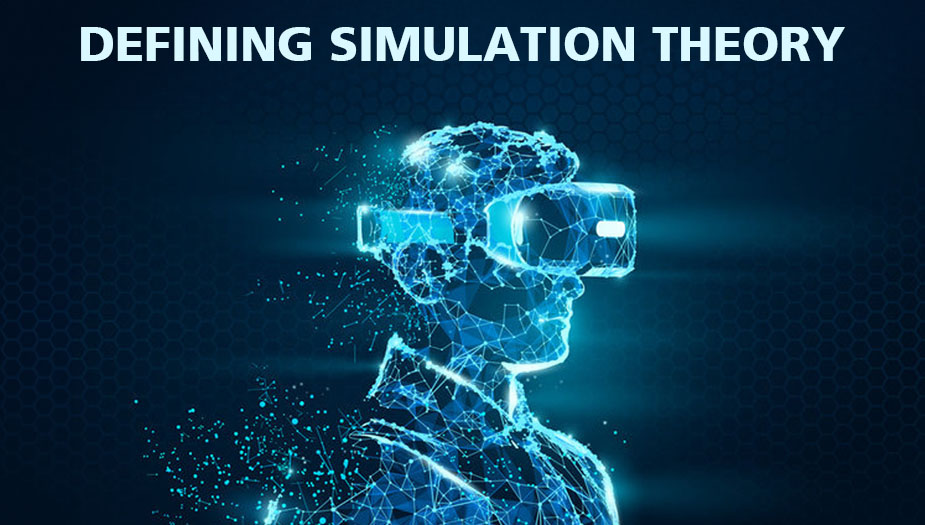
Simulation theory is a captivating concept that our reality is a highly advanced computer simulation. According to this hypothesis, we, as conscious beings, are living within an intricate simulation designed by a more advanced civilization. This idea, made famous by philosopher Nick Bostrom, challenges our perception of existence and raises profound questions about the nature of reality. Proponents argue that the universe’s complexity, the existence of mathematical laws, and the rapid advancements in technology all support the plausibility of simulation theory. Skeptics, on the other hand, emphasize the lack of empirical evidence and the need for further scientific exploration. Whether this theory holds any truth remains uncertain, but contemplating the possibility urges us to explore the fundamental mysteries of our existence and redefine our understanding of what it means to be real.
Proof of Simulation Theory
The notion of simulation theory, proposing that our reality is a sophisticated computer simulation, has intrigued many. However, the quest for concrete proof remains elusive. Supporters often point to certain observations as potential evidence. They highlight the intricate laws of physics and mathematics that govern our universe, suggesting that they resemble a programmed simulation. The rapid advancements in technology and virtual reality also fuel speculation about our own existence as simulated beings. Additionally, quantum phenomena, such as wave-particle duality, raise questions about the fundamental nature of reality. Yet, these observations alone do not provide conclusive proof. Skeptics argue that the lack of empirical evidence and alternative explanations warrant caution. To date, the simulation theory remains a fascinating concept that invites philosophical musings, but it has yet to offer definitive evidence to validate its claims.
Refute of Simulation Theory
Simulation theory, the idea that our reality is a computer-generated simulation, has gained attention and speculation. However, several arguments challenge its validity. First and foremost, the lack of empirical evidence is a significant setback for simulation theory. While complex mathematical laws and rapid technological progress are intriguing, they do not serve as conclusive proof. Furthermore, the theory assumes that a future civilization would be capable of creating such an elaborate simulation, but it is unclear if such technology is even feasible. Another point of contention is the presence of genuine randomness in the universe, which conflicts with the notion of a meticulously programmed simulation. Lastly, the vastness of the cosmos and the seemingly infinite variations in physical laws across different celestial bodies suggest a natural, unscripted universe. Until tangible evidence emerges, simulation theory remains speculative and open to skepticism.
Are We Living in a Video Game?
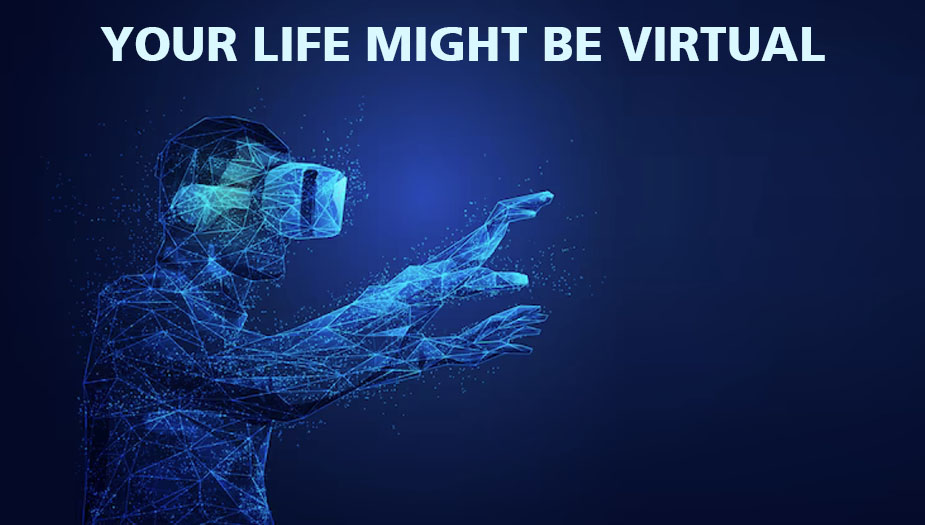
The concept of living in a video game is a fascinating thought that has captivated the imagination of many. It raises intriguing questions about the nature of our reality. Could it be possible that we are characters in an digital world, controlled by unseen players? While it may seem like an interesting idea, the notion lacks substantial evidence. Our perceptions, emotions, and consciousness feel real and deeply personal, making it challenging to reconcile them with the simulated existence proposed by this theory. Additionally, the complexity and unpredictability of our universe defy the structured nature of video game environments. However, pondering this concept encourages us to reflect on the nature of reality and the limitations of our understanding. Whether we live in a video game or not, the exploration of such possibilities broadens our perspective and fuels contemplation.
Evolution of Video Games vs Simulation Theory
The evolution of video games and the concept of simulation theory may seem tangentially connected, but they both delve into the realm of human imagination and the boundaries of reality. Video games have come a long way since their humble beginnings, with stunning graphics, immersive storytelling, and interactive gameplay. However, while video games simulate virtual worlds, simulation theory proposes that our entire existence is a simulated reality. Although video games continue to advance, they are ultimately designed by humans and lack the complexity and depth of the universe. Simulation theory, on the other hand, challenges our understanding of reality itself. While video games entertain and engage us, simulation theory raises profound philosophical questions about our origins and purpose. Whether video games have any bearing on the validity of simulation theory is uncertain. Are video game bugs proof of the potential for a Glitch in the Matrix?
The Future of Video Games and Reality
The future of video games holds immense potential to blur the boundaries between virtual worlds and reality. As technology advances, we can see more experiences through virtual reality (VR) and augmented reality (AR). With VR, players can fully immerse themselves in digital environments, while AR seamlessly integrates virtual elements into the real world. As these technologies evolve, the line between the virtual and physical realms will continue to fade. However, as the distinction blurs, it raises thought-provoking questions about the nature of reality. Will we reach a point where the virtual world becomes indistinguishable from the physical? Could we become so engrossed in digital experiences that we question what is real and what is simulated? The future of video games, with its potential for unprecedented realism and interactivity, will undoubtedly push the boundaries of our perception and challenge our understanding of reality itself.
Introduction to Simulated Reality
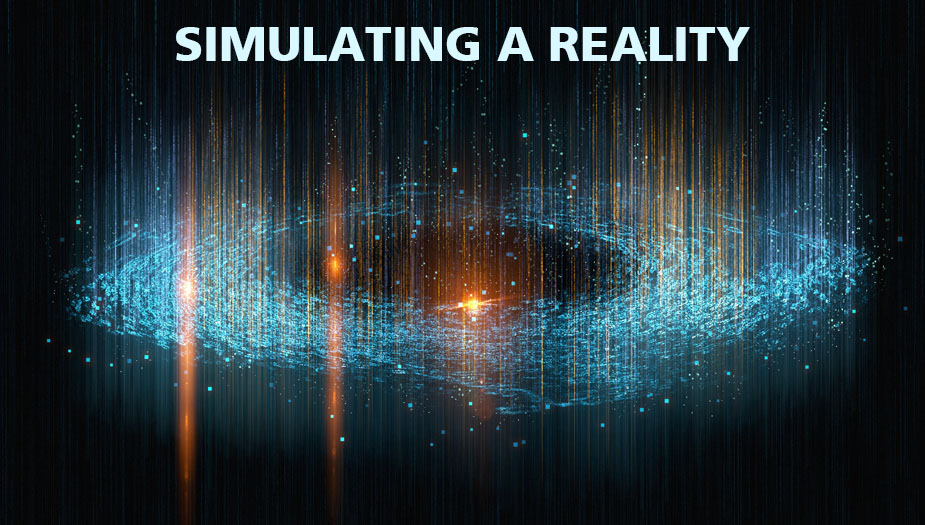
Simulated reality, a concept that has interested people for centuries. It proposes that our entire existence is a meticulously crafted simulation. According to this theory, the world as we see it is a construct, designed by a more advanced civilization or higher beings. This notion challenges our fundamental understanding of reality, raising existential questions. Are we living in a simulated universe? How can we discern the boundaries between the simulated and the real? While empirical evidence remains elusive, proponents of virtual reality argue that advancements in technology and our ability to create realistic simulations make the theory plausible. Skeptics, however, call out the lack of proof and the limitations of human understanding. As we delve deeper into the mysteries of existence, the concept of simulated reality invites us to ponder the nature of our perceived world and explore the enigmatic realm of simulated existence.
Simulated Reality and Forced Boundaries
Simulated reality presents a concept that challenges the very nature of boundaries. In a virtual reality, the world we perceive is artificially constructed, raising the question of whether the boundaries we encounter are real or merely imposed. The notion of forced boundaries becomes significant when considering the limitations we experience within a virtual world. Are the constraints we encounter a result of programmed restrictions, or are they inherent in the fabric of our virtual existence? Furthermore, the concept of simulated reality prompts us to question the boundaries between the virtual and physical realms. As simulations become more real, the line between the two becomes blurred, leading us to ponder the nature of our reality. Are we living in a video game? Exploring simulated reality forces us to confront the notion of boundaries, whether they are inherent, imposed, or ultimately illusory. But also warns of the possible Glitch in the Matrix.
How Long for Perfect Reality?
The idea of simulated reality becoming hard to tell from real reality has captivated the human imagination. Technology advances at an exponential pace. One may wonder how long it will take for this boundary to be crossed. Predicting an exact timeframe is challenging, but experts believe it hinges on several factors. First, achieving truly deep virtual reality experiences that engage all our senses is crucial. Advancements in areas such as haptic and neural interfaces are making significant strides toward this goal. Second, simulating the vast complexity of the physical world and the nuances of human behavior remains a challenge. Lastly, social and ethical questions play a role. Society must grapple with the implications of blurring the lines between real and simulated. While the exact timeline remains uncertain, one thing is clear: as technology progresses, the distinction between virtual and real reality will continue to shrink.
What is a Glitch in The Matrix?
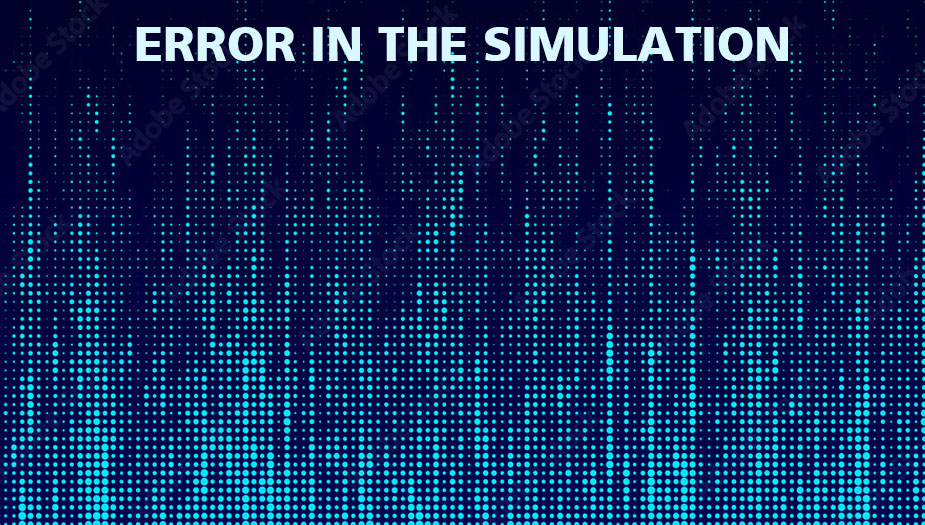
A glitch in the matrix refers to a interesting and often odd experience that challenges our perception of reality. It draws the idea from the movie “The Matrix,” where characters encountered anomalies in the virtual world. In real life, a glitch in the matrix describes moments when the fabric of reality appears to momentarily falter. These experiences can manifest as eerie coincidences, déjà vu, or unexplainable phenomena that defy logic. People report strange occurrences like seeing repetitive patterns, witnessing events that seem impossible, or experiencing time anomalies. Skeptics say these experiences to cognitive biases or memory lapses. Believers see them as glimpses into the virtual nature of reality. Whether a glitch in the matrix is an anomaly or evidence of a larger simulation remains a subject of intense debate. It challenges us to question the nature of our existence.
Examples of Glitches in the Matrix
Glitches in the matrix are phenomena that spark intrigue and challenge our understanding of reality. Derived from the popular movie “The Matrix,” these anomalies refer to instances when the expected patterns of the world seem to momentarily malfunction. Glitches can take various forms, such as sudden déjà vu, improbable coincidences, or distortions in perception. Some attribute these experiences to mere glitches in our own processes. Others perceive them as glimpses into the underlying structure of a virtual reality. Regardless of the explanations, glitches in the matrix invite contemplation on the limitations of human perception. They offer the possibility of alternate reality. These “glitches” ignite curiosity, prompting us to question the nature of existence. They remind us that there may be more to our reality than meets the eye. Exploring glitches in the matrix can lead to insights and challenge our assumptions about the world we inhabit, and answer the question: are we living in a video game?
Explanations of Matrix Glitches
Matrix glitches, phenomena that defy explanations, continue to perplex and interest individuals who experience them. They suggest that glitches in the matrix arise from the inherent limitations and biases of human perception and memory. According to this view, our minds may occasionally misinterpret or not remember events, creating the idea of a glitch. Others entertain theories. They post that these arise from the virtual nature of reality. Are we living in a video game? The glitches are brief glimpses into the simulation. These ideas say that the fabric of the matrix occasionally falters, revealing its virtual nature. Still, skeptics maintain that these can be explained by coincidences, psychological biases, or false interpretations. While no definitive explanation exists, the existence of matrix glitches challenges our understanding of reality. It is forcing us to delve deeper into the mystery of existence.
Simulation theory, with its idea of our existence as virtual beings, continues to inspire and spark debate. Simulation theory serves as a reminder to question, explore, and challenge our ideas of what is truly real.
TO ALL OUR READERS, today we humbly ask you to help our little blog. For over ten years now, BinauralBlog.com has been producing fantastic mindfulness articles. We do not beg for donations, use any intrusive popups, sell any form of user data, or fill our content with ads. How do we sustain ourselves? We need shares, plain and simple. The time has come for us to make a simple request. Please, if you enjoyed this article and want us to keep producing content - use any (or all) of the CIRCULAR SHARE BUTTONS ABOVE to help support our little blog. Thank you from the Binaural Blog, Founder & Team




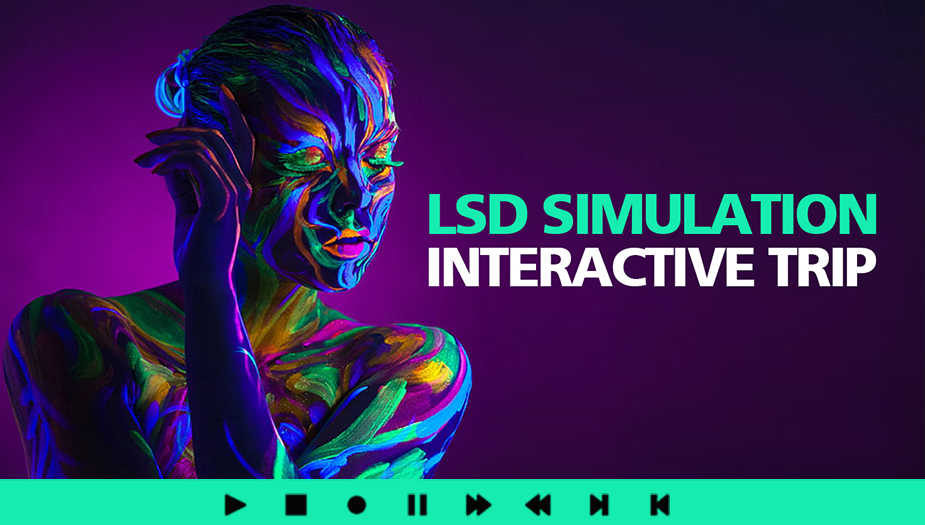
Simulation theory is mind-boggling! It’s fascinating to contemplate the idea that our reality could be nothing more than a complex computer simulation. It challenges everything we think we know about existence.
I find simulation theory both intriguing and unsettling. The concept raises profound questions about the nature of reality and our place within it.
I remain skeptical. The lack of concrete evidence and the complexity of the universe make it difficult to fully embrace. But I appreciate the philosophical discussions it generates.
Simulation theory reminds me of science fiction stories, but who knows what the future holds? With advancements in technology and the ever-expanding boundaries of knowledge, maybe we’ll someday uncover evidence supporting this intriguing hypothesis.
The idea that we live in a video game adds an extra layer of wonder to the world.
Amazing article. I always though the idea that we have restricted boundaries (the earth’s atmosphere, space, the sea, etc) that we are limited by with travel is an indication we might be living in a simulation that can’t render that much data, so we are limited to the game being played on Earth.
Considering how bad I am at playing it… life just might be a game
This gives you something to ponder when you look up at the night sky.
If we are living in a video game, why play video games?
If we are living in a game them I am winning.
If we are living in a video game it’s probably made by a crappy developer like Electronic Arts.